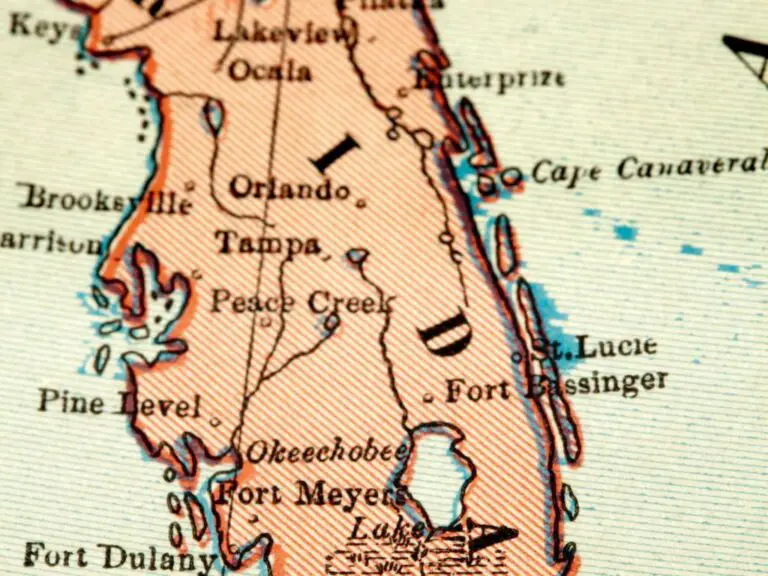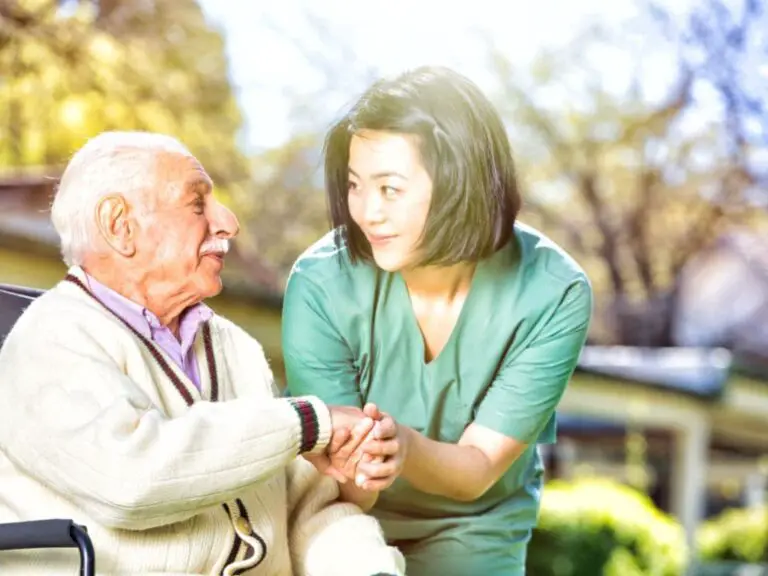Senior Housing in New York: Costs, Options, and Assistance
How much is senior housing in New York? Senior housing in New York encompasses a wide range of services, each typically costing different amounts. In-home care, which includes Homemaker Services and Home Health Aide assistance, amounts to about $4,957 and $5,148 per month respectively. Community and assisted living options such as Adult Day Health Care costs around $1,690 monthly, while the cost for an Assisted Living Facility is approximately $4,500 per month, and a semi-private room in a Nursing Home Facility generally costs about $7,908 monthly.

What Is Senior Housing?
Senior Housing is a term used to encompass a range of accommodations specifically designed for individuals aged 55 and over. Types of senior housing services include homemaker services, home health aide, adult day health care, assisted living facilities, and nursing home facilities, each varying in cost. This reflects the range of support options available in senior housing to accommodate different levels of physical ability and independence.
Prices can vary substantially per service, with homemaker services and home health aide options costing approximately $4,957 and $5,148 respectively, whereas the cost of living in a nursing home facility with a semi-private room is estimated to be around $7,908. Costs are significantly influenced by factors such as the level of care required, location, and the type of accommodation preferred.
Average Cost of Senior Housing in New York
Independent Living Communities
The average cost of Independent Living Communities in New York is approximately $5,400 per month. This figure is derived from the average costs across all types of senior housing in the state, which is estimated at $6,093 per month.
The cost of independent living is often lower than other types of senior care such as assisted living, which costs an average of $6,561 per month, and memory care, which costs an average of $5,818 per month. The specific costs of independent living in New York can vary depending on the location, level of amenities, and range of services offered.
Assisted Living Communities
The average cost of Assisted Living Communities in New York is approximately $6,495 per month. It should be noted that these prices may vary based on the range of services provided by the facility and the specific needs of the resident. The pricing for senior care can differ significantly from adult day health care which is typically more affordable, averaging around $1,950 per month.
Nursing Homes
The average cost of nursing homes in New York typically depends on the type of room preferred by the individual. While a semi-private room has an average cost of around $11,254 per month, the cost for a private room is typically higher, averaging around $12,151 per month. These prices are reflective of the standard offerings and may substantially vary depending on the specific nursing home facility and the range of services provided.
Adult Day Care Services
The average cost of Adult Day Health Care Services in New York is $1,950. Adult Day Health Care is a type of service that provides the elderly and adults with chronic health conditions with therapeutic, health, and social services. It aims to ensure their overall health and well-being, and to avoid premature institutionalization. These services could include meal provisions, medication management, recreational activities, and physical and occupational therapy. The cost given reflects the average cost and can vary depending on the specific service level and location within New York state.
Memory Care Facilities
The average cost of Memory Care Facilities in New York is approximately $5,725 per month. Memory care is a form of long-term residential care specially designed for people with Alzheimer’s disease, dementia, or other types of memory problems. This expense typically includes services such as 24-hour supervised care, medical monitoring, assistance with daily activities, and therapies designed to slow memory loss. Of course, the exact cost can vary greatly depending on various factors such as the location of the facility within New York, the specific services offered, and the level of luxury of the facility.
How Do New York’s Senior Housing Costs Compare to Other States?
New York’s senior housing costs are relatively high compared to other states in the U.S. As of 2022, the median monthly cost for a private room in assisted living in New York was $5,940, making it one of the top ten states with the highest assisted living costs according to data from A Place for Mom. This is well above the national median of $4,810 per month, and indicates that New York’s senior housing is significantly more expensive than most other regions in the country.
Generally, states in the Northeast and along the West Coast, including New York, have higher costs due to reasons such as a high cost of living and more expensive housing prices. Specifically, factors leading to this high cost in New York may include land values, state regulations regarding assisted living, and the level of amenities and services provided by senior living communities.
In contrast, the states with the least expensive assisted living tend to fall in the Midwest and South. For instance, the median monthly cost of assisted living in Missouri, the state with the lowest median cost, is $3,000, which is significantly less than New York’s median cost. This suggests considerable regional disparity in the costs of senior housing across the U.S.
It is worth noting that, although New York’s senior housing costs are high when compared to other states, they are not the highest. As of 2022, states like Vermont, New Jersey, and New Hampshire had greater median monthly costs for assisted living.
Financial Assistance Options for Senior Housing in New York
Financial Assistance Options for Senior Housing in New York comprise several programs aimed at providing affordable housing arrangements for senior citizens who meet specific income and age thresholds. These programs cater to low and middle-income seniors residing in New York City and play a crucial role in reducing poverty among this population.
The Enriched Housing Program
Operated by the New York Foundation for Senior Citizens (NYFSC), this program offers subsidized assisted living services to low-income senior New Yorkers who are functionally impaired but do not need constant care. It includes a host of amenities like social interaction opportunities, personal hygiene assistance, shopping, meal preparations, housekeeping, medical appointments, and laundry services. Home spaces are available in seven buildings across the city, with most of them located at River View Gardens in Long Island City, Queens.
Home Sharing Program
This program matches adult tenants (hosts) with extra space in their homes with adult guest tenants. One of the matched pair must be 60 years or older. The program also accommodates hosts aged 55 or above who wish to share their home with a developmentally disabled adult guest. Shared expenses depend on an arrangement between the host and the guest, providing a cost-effective companionable environment for both parties.
Affordable Housing Program
NYFSC’s Affordable Housing Program provides subsidized, comfortable housing for senior citizens across Manhattan, Brooklyn, and Queens. This program enables seniors to live independently and age in their own homes without the associated financial burden.
The Mitchell-Lama Program
Established in 1955, this statewide program offers affordable rental and cooperative housing to New York City’s middle-class senior citizens. To be eligible, senior citizens must meet specific income requirements. This program uses a lottery system to place applicants on a waiting list, giving preference to veterans and their surviving spouses.
These programs provide a lifeline for senior citizens struggling to meet high housing costs in New York City, offering them a more manageable and secure living arrangement.
New York’s Most Affordable Cities for Senior Housing
While New York is often associated with high living costs, there are definitely areas in the state that offer more affordable housing options, especially for seniors. Here are some cities particularly noted for their affordability:
- Albany: the capital of the state, Albany is known for its rich history, bustling downtown area, and affordable living. This city offers a variety of senior housing options at different price ranges.
- Buffalo: As the second-largest city in the state, Buffalo provides many amenities, including budget-friendly senior housing. It’s also known for its charming neighborhoods and vibrant arts scene.
- Hornell: This smaller city offers a quiet, slow-paced lifestyle for seniors looking for affordability. Housing prices here are considerably lower than the state’s average.
- Hudson: Despite its serene setting on the eastern banks of the Hudson River, Hudson offers affordable housing options. Its architectural charm and vibrant arts scene makes it an attractive place to live.
- Ilion: In the heart of Mohawk Valley, Ilion presents an array of affordable senior housing options. Its strong community spirit and plentiful amenities also add to its appeal.
- Ogdensburg: Located along the Saint Lawrence River, Ogdensburg features picturesque views and lower cost housing options. It also delivers the amenities seniors need, making it an affordable and convenient choice.
- Olean: With low housing costs, Olean is highly affordable for seniors. Its small population contributes to a close-knit community feel.
- Syracuse: In addition to its historic charm, Syracuse features lower-than-average living costs. Seniors can find a variety of housing options at a more affordable rate.
It’s important to note that while these cities are generally more affordable, pricing can vary within these locations. Therefore, seniors should research carefully to find a home that fits their budget and lifestyle preferences.
What Is the Procedure to Apply for Senior Housing in New York?
Applying for senior housing in New York entails a series of eligibility requirements and application steps. This generally falls under policies set by the New York City Housing Authority (NYCHA).
Eligibility Requirements
Applicants must be 18 years of age or over or be an emancipated minor. They should also have at least one household member who is a United States citizen or a non-citizen with eligible immigration status. Moreover, the household income must be equal to or below the income limits listed on the NYCHA website.
Applicants do not need to have children, an income, or be a New York resident to apply. However, those who live or work in New York City receive priority. An applicant can apply for public housing in spite of being on the waiting list for Section 8 housing.
Filing the Application
Applications for public housing can be made online on the NYCHA website or in person at a NYCHA walk-in-center. During application, applicants can choose their first and second choice of a borough but cannot apply for a specific housing development. They are required to provide information about their total household income, family makeup, and current living situation.
Application Status and follow-ups
After an application is submitted, applicants should receive a letter within two weeks which will provide their assigned housing priority. If this is not received, the NYCHA customer care center should be contacted. Following this, the applicant may be called for an eligibility interview.
Once deemed preliminarily eligible, the applicant is placed on a waiting list for a borough or housing development. When an apartment becomes available, criminal background checks are conducted on all household members aged 16 and over. If all requirements are met, the applicant is allocated the apartment. If not, they will be provided with a letter with instructions on the next steps.
Online Tracking and Updating Information
Heads of households who are applicants can register at the NYCHA Self-Service Portal to monitor their application. They can update information such as phone numbers, emails, and preferred boroughs on this site. To include or remove an income or a family member, however, a new application must be completed.
Waiting List
To remain on the waiting list, applicants are required to reapply every 24 months. This ensures only those still in need and eligible remain on the waiting list for public housing.





